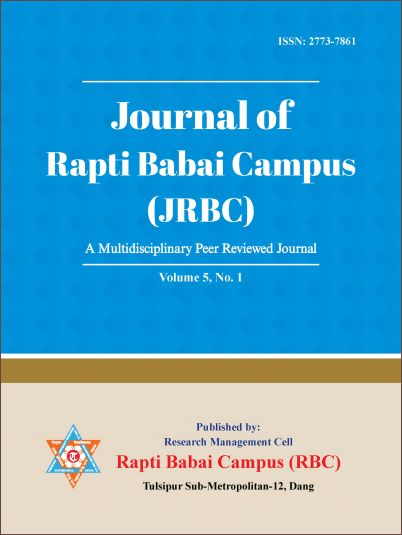Challenges of Social and Economic Transformation in Joseph Conrad’s Heart of Darkness
DOI:
https://doi.org/10.3126/jrbc.v5i1.78061Keywords:
colonialism, exploitation, upheaval, psychological, imperialismAbstract
Joseph Conrad's Heart of Darkness is a serious critique of colonialism. The novel shows its impacts, both economic and social, concerning the colonizers as well as the colonized people. This has been set against the backdrop of Congo to pinpoint the imposition of capitalist systems upon traditional African societies driven by brutal enforcement. Such contrasts between the insatiable greedy European economic interest and indigenous ways of life eventually translate into the local economy, social setup, and cultural identity. In its symbolic use, Conrad criticizes the exploitation of the natural resources of Africa, a metaphor for the suffering and degradation of the indigenous populations, through ivory. Indeed, their search for gains due to natural resources comes at the expense of humanity for the Africans, the enforced labor being central in such exploitation under inhuman conditions. The characters used, Kurtz and Marlow, reveal some sort of psychic influence that may emanate as an aftermath of imperialism. While Kurtz's descent into madness epitomizes the moral corruption and psychic disintegration that arise out of an unrestrained pursuit of economic profit, Marlow's journey depicts internal conflict and disillusion on the part of those who bear witness to the horrors of colonialism. Powerful though the critique of imperialism may be, in this novel there have been critical remarks regarding its Eurocentric position and its representation of African people as passive individuals with no agency. The absence of the narration of African voices undermines the multicategory of social and economic transformation that took place in the Congo and omits possibilities of resistance from those colonized. In any case, Conrad has relevant insight into the ethical dimension of colonialism through the forces of self-destruction driven by economic greed and the mission to civilize.




